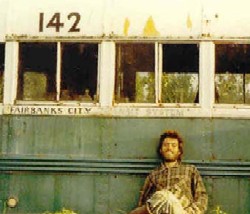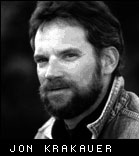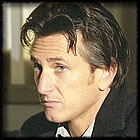 During my college days, I happened to take (by pure chance) both Sociology and Economics (Macro) in the same semester (while working full-time).
During my college days, I happened to take (by pure chance) both Sociology and Economics (Macro) in the same semester (while working full-time).
What I learned during that semester (tho neither professor came right out and said so) is that the socio-political system (of a nation) is defined by its economic system (and vice versa).
Many of the weekly classes mirrored one another. For example, I would go to my Sociology class one night, where the professor would talk about "Karl Marx, the great social scientist." The next evening, sitting in Economics class, I'd hear all about "Karl Marx, the great economist."
Communism is both a socio-political and an economic system (which precludes private ownership). The same goes for Capitalism (which is founded upon private ownership as one of its central tenets).
It's worth mentioning (as a side note) that professors in both classes were quick to point out that the version of "communism" practiced by countries such China and the old Soviet Union bears little resemblance to the socio-economic (political) system espoused by Marx & Engels. (I got an A in both classes, which was all that mattered to me.)
Here in the States, where the notion of capitalism is so ingrained that it has become part of who we are, we walk around largely unaware that other systems exist. We know only that Communism is bad. But in reality, no system of government is perfect. All have flaws. (Cuz they're all run by flawed, imperfect people.)
But here's my point » how we approach money (capital) speaks *volumes* about who we are, both collectively (as a people) and individually (as a person).
In a capitalistic society (such as the one in which you & I live) it's rare to find someone who does not esteem capital. I mean, even the panhandler prizes your loose change. The lives of those at all levels of the socio-economic ladder seem to revolve - to some degree - around capital. How many people have been murdered for money? Now I said all that to say this.
Into the Wild
Regulars may recall how much I enjoyed reading the book » Into the Wild (by Jon Krakauer). Here's a snippet of what I wrote back in October (on the 5th) 2005.
Been enjoying this new book: Into the Wild (refer to yesterday's entry). Feels like I'm sucking the juice out of every word. Fascinating reading. Read the first chapter twice .. so the book would last longer.
••• today's entry continues below •••
 As with Krakauer (and countless others), the story of Chris McCandless struck a cord in me. I have the book here in my hand. The cover says:
As with Krakauer (and countless others), the story of Chris McCandless struck a cord in me. I have the book here in my hand. The cover says:
In April 1992 a young man from a well-to-do family hitchhiked to Alaska and walked alone into the wilderness north of Mt. McKinley. His name was Christopher Johnson McCandless. He had given $25,000 in savings to charity, abandoned his car and most of his possessions, burned all the cash in his wallet, and invented a new life for himself. Four months later, his decomposed body was found by a moose hunter...
Capitalistic Blasphemy
Notice the references (highlighted) to how completely he renounced the things most good capitalists prize. This is one of the things about the story that really grabs people's attention. Those of us working hard everyday (to acquire capital) view such forsaking as .. well, as a sort of capitalistic blasphemy.
Into the Wild is now a Movie, by Sean Penn
My main point today .. is to tell you this book has been made into a film, scheduled for release the 21st (one week from Friday, near the fall equinox). Trailer » here. Reviews » here.
An article published in the Los Angeles Times mentions that McCandless was very upset by his parents' (quote) "capitalistic obsessions." Here's another quote:
McCandless grew up in a wealthy but troubled Virginia family; when his parents weren't fighting, they were working around the clock.
Relating
When I was 11 years old, I begged my folks to let me get a paper route (deliveries 7 days a week), which I kept 'til I was old enough to get a job at a car wash (at age 15) .. where I stayed until I could get a job at a gas station (age 16), which offered more hours (7 days/week).. which I kept until I went in the Navy (at age 18). So I always had plenty of spending ca$h.
Yet my folks, too, seemed to place an inordinate emphasis on money. I remember, once, out of frustration, tearing up a 20-dollar bill .. to make a point. I was trying to convey that money shouldn't be the most important thing in life. (Seems obvious, no?)
In retrospect, I can see now that I wasn't getting from them what I needed (the intangibles, such as love, attention, affection, understanding, etc. you know). But as pimple-faced teenagers, we often lack the skills needed to express these things in an effective manner.
I'll never forget my parents' reaction. My mother's jaw dropped (literally). I mean, if I would've called the Pope a dirty name, I can't imagine a more dramatic expression. (We grew up Catholic.) She threatened to have me arrested .. "for destroying government property." =)
Now certainly money is important. Few will deny that. Which is probably why it's easy to give it such a place of prominence (reverence?) .. one it often doesn't deserve. In the end, it all comes down to one's values & priorities. And mine diverged from those of my family.
Security & the Adventurous Spirit
I remember (last year) while living out my car, how I felt more alive than I had in a long time .. something I *still* don't fully understand. But the following quote from McCandless might shed some light:
".. a life of security, conformity and conservatism .. appears to give peace of mind, but in reality nothing is more damaging to the adventurous spirit within a man .. than a secure future."
Talk about job security .. the Navy was the ultimate » you couldn't quit (.. at least not for 6 years).
Role of McCandless' Parents
The movie, surprisingly, is critical of McCandless' parents. I say surprising because they're the ones who had to authorize the project, something they were not willing to do .. until only recently. (The book was published more than 10 years ago.)
 More surprising is that the parents selected (from a long list of producers, I'm sure) Sean Penn, who (if you know anything about Sean) isn't known as the type who is likely to water down the truth .. in order to secure rights to the film. [Sean wrote, produced and directed this film.] From the Times article:
More surprising is that the parents selected (from a long list of producers, I'm sure) Sean Penn, who (if you know anything about Sean) isn't known as the type who is likely to water down the truth .. in order to secure rights to the film. [Sean wrote, produced and directed this film.] From the Times article:
But unlike Krakauer's book, which Penn feels errs on the side of being sensitive to the parents' concerns, Penn's movie is more unflinching toward them, particularly in what role they might have played in their son's decision to renounce them.
"It's impossible," says sister Carine of her parents, "to be fair to Chris without being critical of my parents."
Despite that 15 years have passed since their son's death, this is still huge .. especially since I'm sure other producers offered promises of a less-critical picture. Regarding the parents, Penn says:
"There is something selfless about their decision. It one thing to lose a son. It's another to hold yourself accountable to being part of that."
After college, Chris McCandless left for the wilderness. The big question in everybody's mind is "What drove him?" After high school, I left for the Navy (couldn't leave fast enough. I know what drove me.). In the book, Krakauer-himself describes a similar need to get away (from his parents). The common thread? » Contentious family relations.
Still Time to Read the Book
For those who plan to see the movie when it comes out, you still have time to read the book. At barely 200 pages, it's a quick read (too quick). One final quote (from Penn):
"I think you would be hard-pressed to find a more authentic adaptation of a book in the last 10 years."
The initial casting included Leonardo DiCaprio (as McCandless) and Marlon Brando (as father-figure Ron Franz). That was 10 years ago. Sean waited a long time to make this movie. Patience is a virtue.
More
Here's something very interesting I just realized (November, 2009) .. after reading the Wikipedia bio-page for Eddie Vedder, who did the soundtrack for the film. Both Vedder & McCandless have the same life-experience in that both were deceived by their parents regarding the situation regarding their respect dad's.
Vedder did not know his dad was not his real, biological dad until later in life. McCandless did not know about his dad being married to another woman other than his mom. In both cases, the deceit cause serious emotional damage. I can only assume that this is why Vedder was selected to write the soundtrack (which *does* rock, btw).
For more along these lines, here's a Google search for the query » into the wild film movie review sean penn mccandless krakauer

Comments (8)
Test commenting system anti-spam feature.
Posted by Rad | September 11, 2007 8:37 PM
Posted on September 11, 2007 20:37
Rad,
That trailer was awesome. Hopefully it will come out in Taiwan too(though not for a few months prolly).
I miss the states, I kinda feel like I went into the wild too...but not so cold as much as humid, tropical and hot!
Evan
Posted by Evan | September 12, 2007 10:16 AM
Posted on September 12, 2007 10:16
"There is something selfless about their decision. It one thing to lose a son. It's another to hold yourself accountable to being part of that."
i really know nothing of these people. haven't read the book yet or anything. but in terms of the parents, it seems confessional, and perhaps there is some hope for some kind of redemption? maybe they are realizing that the Church and wealth are not the oh so great foundations for life that so many have been "taught" to believe...
Posted by Mij | September 17, 2007 7:53 PM
Posted on September 17, 2007 19:53
i didn't read the book, I've never been to Alaska, but did go to High School with Chris. I understand the world he grew up in. In Fairfax, VA and our high school image and your reputation was everything... the right car, right friends, having money, going to the right college, politics... I also saw how none of that shit made anyone happy most of the time. To lose yourself and give up everything you own is something I think everyone should do. I did it, but didn't venture as far as Chris. Sean I'm glad you made this movie. I like the actor staring in it and can't wait to see it. I guess I'll read the book as well.
Posted by Suzette | September 18, 2007 11:22 AM
Posted on September 18, 2007 11:22
Thanks for the critique, input and taking the time to post this blog.
I read the book several times back when it came out. Today I saw the movie.
Agree with everything you said, except when you're 23, you're very pretentious. Your parents are money-grubbing capitalists. The world is filled with idiots who don't understand what's important.
Then, suddenly, you're 30, working and realizing things are different. McCandless unfortunately was dead before that realization.
Perhaps if Chris had grown up hungry, with holes in his shoes, having to work at age ten, he would not have felt that comfort, a warm bed and security was so bad. But he didn't, and therefore he thought society was this terrible place.
One thing I massively disagree with: I didn't think the movie was highly critical of the McCandless parents. Sean Penn wasn't that daring. He merely told the story very much from Chris's point of view.
Don't read too much into it. I happen to agree with most Alaskans and say that Chris was an idiot who didn't do enough research, preparation or planning. Unfortunately, he got what he unwittingly asked for.
Loved the book and loved the movie, think Sean Penn made a great film, but wouldn't overthink it too much.
Actually watered-up many times throughout the movie, particularly at the anguish of Ron Franz, Raney's relationship with her son Reno, Chris's parents and the narrative of his sister.
What an arrogant, selfish, idealistic, naive young man. "Young" being the operative word. But it made me hop on online this evening and see what other people thought of the movie.
Thanks for providing a venue for that conversation.
Posted by Glenn | October 20, 2007 8:33 PM
Posted on October 20, 2007 20:33
radified -
thanks for this post. i just finished watching the movie and googled chris mccandless and found this post. i like your take on how our economic system and our culture are so deeply intertwined.
az
Posted by AZ | April 23, 2008 12:13 AM
Posted on April 23, 2008 00:13
I just watched the movie and it is one of the most amazing stories of the human spirit. There is a quote in the movie that to me was the essence..'Forgiveness is Love and if you Love.. God shines a Light on you..' My interpretation was that Chris didnt feel love and that is what drove him to solitude , to find it in a place within that doesnt rely on relationships. Of course at the end he wrote in his last words that Happiness was only real when shared. Perhaps if he had a loving relationship with his parents and a tru sense of belonging as in Maslows heirarchy of needs he might still be alive..all we need is love ( Lennon) I hope they manage to forgive themselves. Im now going to read the book
Posted by Julie P | February 13, 2011 2:20 AM
Posted on February 13, 2011 02:20
I too aced my Sociology class and have always objectively looked at every government, every ideology. I had these exact same thoughts about the whole thing and was searching for an informed opinion on this story too. Yours is the only one I have stumbled across so far besides those of forums.
As an objective outsider, I can see his rationale. As a puppet of capitalism who doesn't know other systems exist, I would say he was crazy, like most of capitalist society would.
The dumb naivety of society, or so I'd say, is what drove him to go. He wasn't necessarily seeking solitude, just to be free of the hegemonic world in which he lived in.
Posted by Natalie | January 28, 2014 5:53 PM
Posted on January 28, 2014 17:53